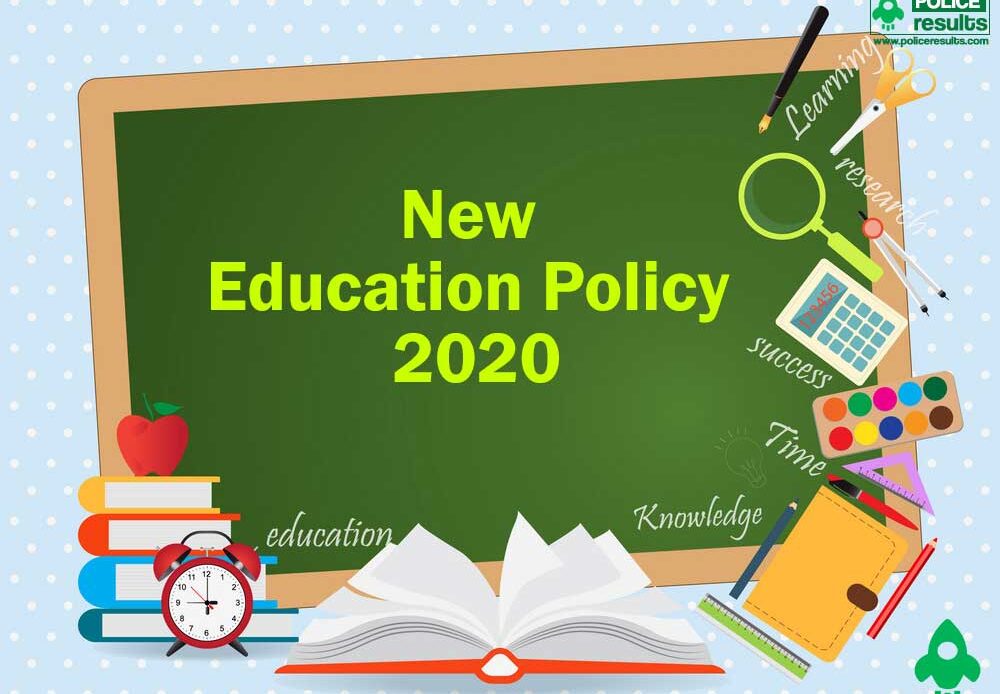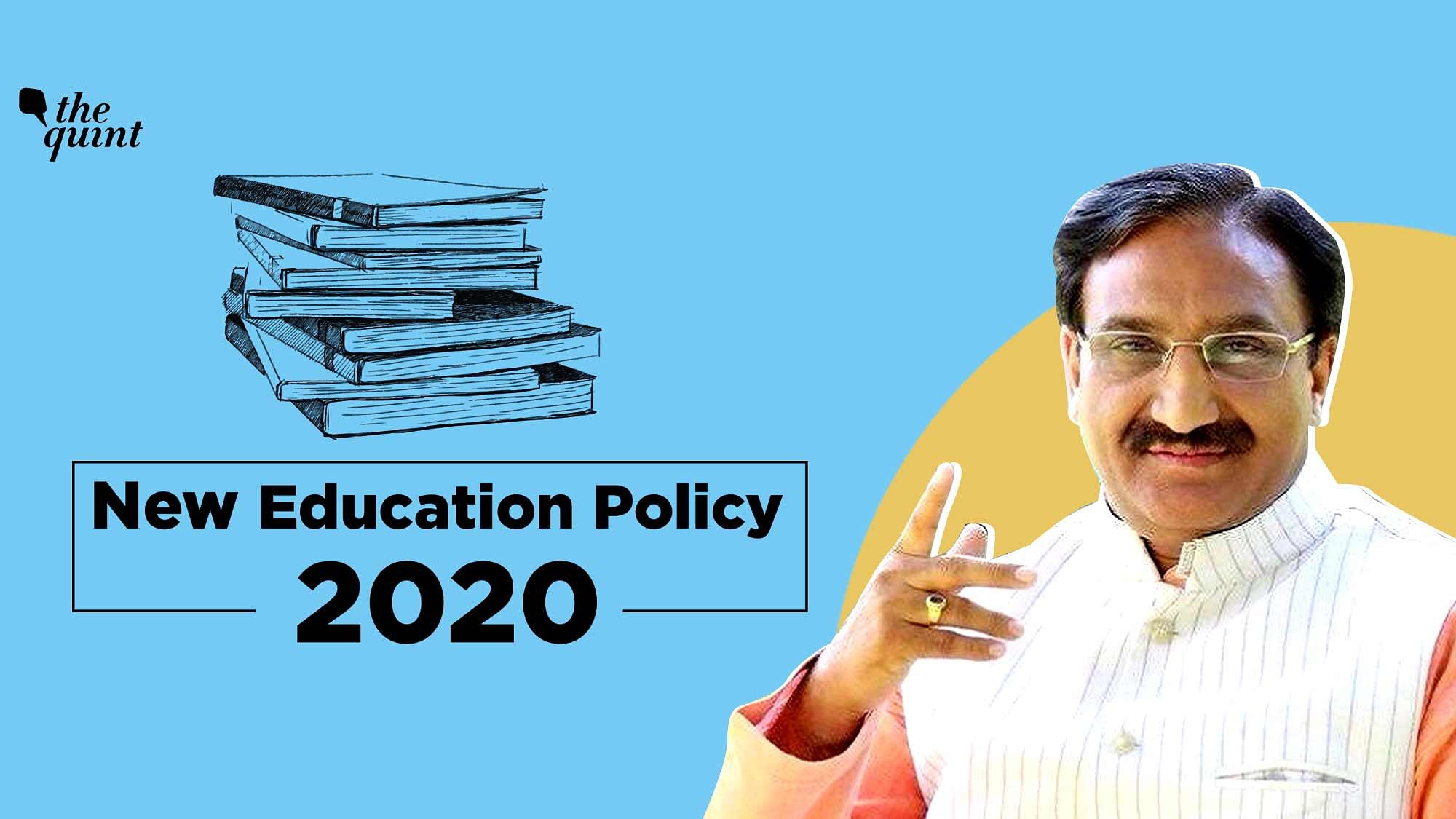
![PDF] New Education Policy 2020 School: NEP 2020 Implementation Date](https://policeresults.com/img/New-Education-Policy-2020-Highlights-School-and-higher-education-to-see-major-changes.jpg)
Sometimes it happens that though it is a bit late to talk upon a topic … you talk about it because of its importance in near future. Just like that I couldn’t restrain myself from talking upon the NATIONAL EDUCATION POLICY (NEP) 2020 brought by the government in July. It is no surprise that this NEP will pave the way of how our future generation progresses in future. From first time ever Budgetary allocation for Education going up to 6% to every Educational Board (Engineering, Medical, Law) coming under one umbrella, there are quite a many things at store, with the main aim being making the education model upgraded, skill based and linked to grass root level, focusing at par with the requirements of the 21st Century. Following are some key highlights which we will try focusing at and then go on to overall review.
The Restructured Curriculum
We have been accustomed to the 10+2 Curriculum model where we study till class 10th and then go for Intermediate in a particular stream (Science/Arts/Commerce), but the new model paves the way for a 5+3+3+4 Model where a student studies Nursery and 2 Kindergartens (1st 5), then class 3,4,5 (2nd 3), then class 6,7,8 and finally 9,10,11,12. So we can see that Intermediate or Matriculation haven’t been kept too distant or different from each other as they are kept in the same ‘Bracket’. Also, Exams are officially to be taken only after the end of a particular Bracket, ie, after 2nd, 5th, 8th and 12th class only, though its no brainer that schools will surely take exams each year. Also, BOARD exams of 10th and 12th will be continuing as usual. As a major surprise and thumping as well, now there is no strict STREAM as such, it means you can choose Economics, History and Chemistry together and complete your Intermediate. Also, as a fact this model existed before 1986 as well so they have actually gone back to it
Multiple Entry/Exit and Credit Bank
I just loved this idea … it says that one is free to do graduation in 3 different subjects, or only 1 year in graduation or doing it taking as much time as one wants. Basically, one will get a CERTIFICATE after doing 1 year, DIPLOMA after doing 2 years and DEGREE after 3 years, so one is getting acknowledgment for whatever he is doing and one can take up a subject of an entirely different stream as well. Also, 3 different 1 year Certificates will be Equivalent to ONE Graduation. A major benefit of this idea is that ones credit is being stored and no one is actually dropping out. I think it will more informative learning this way and I wish had I been able to opt something like this.
EMPHASIS ON REGIONAL LANGUAGES
The policy says that up to class 5 (even after that if possible), all subjects should be taught in local or regional language. Now, this is a serious point, first of all it will be very difficult to find teachers who can teach a particular subject say Science or Social Science and also has the knowledge of local language. Even in private or high profile schools, it wouldn’t be possible to get such teachers, let’s forget about the Government schools. Also, a major point ignored here is the case of children whose parents are in a transferrable job.
Suppose, they study till class 3 in Assam, where they will be taught in ASSAMESE and now due to their parents transfer to Maharashtra they will be taught in MARATHI, how will that student ever be able to cope up. Not just that, if ENGLISH is brought into the curriculum right from class 6 it will be the underprivileged students who will be the sufferers as despite some inconvenience high profile and well off students will be able to cope up in the language. Also, however COLONIAL the language English might be, it is the global language, and even if you want the subjects to be taught in local languages, in my opinion it will be a good idea to keep English a part of the curriculum.
Vocational and Skill Training
There are plans of as many vocational courses as possible to be inculcated amongst Students. Skills such as Carpentry, Gardening, Repairing will be taught to students. Other skills and sports will also be available to be taken as subjects and CODING will be taught from as early as from class Six. Also, there will be ‘Bag-less’ days where they will taught practically and will be engaged through Quizzes and Debates. The new curriculum will be designed such as to cover only the ‘Core’ topics and main focus will lie on implementation and skill based learning. The basic idea can be taken as, every one should learn the core concepts of all subjects but only CORE not too high level, the extreme details will be a part of Specialization which one will opt further. It is a great idea from my opinion.
Sports as a Subject ?
Amongst all the subjects available though SPORTS will be available as a subject and so will other skills, but how many Indian Parents will allow their children to pursue it. Here, I think a great opportunity was missed in my opinion, of making Sports as a compulsory subject. I don’t know why there is so much reluctance for Sports as a part of our lives, the result we see in every Olympics n the form of our poor performance. We need to understand that it’s not just a Game but a way of life which teaches us qualities like Team Work, Never Giving Up and Dedicated Concentration. It’s high time now that we change our thinking from a Sports Loving Nation to a Sports Playing Nation. It is never too late to bring this much needed point in the Policy, only being a Compulsory subject will Sports be able to reach out to every nook and corner of the country.

Conclusion : Policy Good on Paper but needs Serious Implementation
After looking to almost all the main points of the Policy, there is no doubt that the Idea is very good and at par with today’s requirement … but on PAPER. Once we start thinking about its Implementation we get to know the real conditions of our schools specially Government ones, how many will be able to implement even ONE of these policies at ground level. Though the allocation is being increased to 6%, it is still going to be a tedious task. But the rise in allocation is significant (from 1.6 to 6), so I really hope this extra money being infused works in the right direction or else we have seen cases where there were stark differences in what government announced and what actually reached the ground level, latest example being the COVID Relief Package (only 10% was released of announced 2 Lakh Crore).
OK … but still I would say that it is a very good initiative at least, though it came 5 years late as announced. And it is the responsibility of each one of us to make sure that the policy becomes a Success at ground level. The best we can do is help our mindset, not thinking Skill based or Vocational trainings as low profile works, allowing students to pursue multiple courses through Entry Exit according to their interests without judging them … though for that keep the RELTIVES as far away as possible, and also promoting good education models by trying to implement it throughout … I may sound Biased but the AAP Education model needs to be looked at. All and all I hope for the best and wish government and everyone actually the very best for its Implementation hoping it helps our current needs and problems.
JAI HIND
ARUNESH SINHA
References :
- 5 Key things regarding National Education Policy 2020, Abhishek Gulati, August 9, 2020 https://www.mindler.com/blog/national-education-policy/#:~:text=Schooling%20to%20begin%20from%20the%20age%20of%203%20years%3A&text=This%20new%20system%20will%20include,and%2014%2D18%20years%20respectively.
- New Education Policy: The Good, Bad & Ugly from lens of educationist, By Staff Reporter, July 30. 2020 https://www.freepressjournal.in/indore/new-education-policy-the-good-bad-ugly-from-lens-of-educationist

